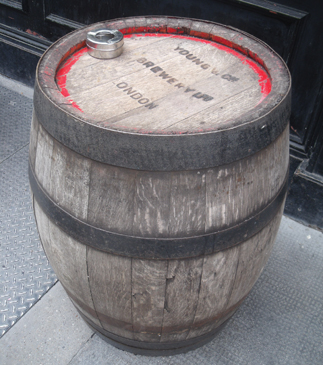The lights went down and the music came on. ‘Oh my God!’ the man said. He clutched his head and kept clutching it. The three women stood around him on the dancefloor of the nightclub, concerned. The man had red over his left eye. A champagne bottle was lying on the floor. A woman in black and wearing a body camera on her chest came up and identified herself as the venue’s head of security. The man was a victim of a bottling – presumably; it had all happened so quickly, and maybe it had been an accident? If not, it was a crime scene? The lights came on again, and the brief playlet was over.
We were sitting in the London Hippodrome in Leicester Square, at a ‘getting a grip’ afternoon seminar by Safer London. Former senior Metropolitan Police officers now of Soter Protective Services – Graeme Ironside, Dr Brian Chappell, Peter Spindler and Ed Sherry – were taking an audience of 100, security and general managers of London pubs and clubs through how to manage a crime scene; days before, so it turned out, the Saturday night terror attack on London Bridge and the pubs and eating places of Borough Market.
The event was organised by the business crime reduction partnership Safer London, and introduced by the partnership’s operations director James Lawley-Barrett, for venue managers, including (in the jargon of licensing law) designated premises supervisors (DPSs) to hear about how to go about managing a crime scene, whether a bottling (as in the playlet) or assault, or a slip or trip.
On licensing law – and how crime on premises, particularly if not planned for and dealt with well, can lead to police and the authorities seeking to review a premises licence or get a venue closed – the event heard a recorded video talk by the barrister Philip Kolvin, who chairs London’s night time commission for the Mayor of London Sadiq Khan. Simon Thomas, CEO of the Hippodrome, which as on previous similar occasions lent part of his venue to Safer London, welcomed visitors with a short talk.
The event was given by Soter Protective Services, trainers and consultants. One of them, Graeme Ironside, once head of licensing for the Met Police in Westminster said that a venue could be held to blame for an incident, even if the victim slips or trips, and is ‘off their head’. He urged premises to look at the skills of all their staff, including cleaners and reception. He gave the case of a Romanian cleaner who asked his manager if he should act if he saw an incident in a toilet. The manager told the cleaner it wasn’t his job; and that he ought to call security. Yet as Graeme said, the cleaner had been in the military (in his home country) and was more trained than anyone in the venue where he was now working; and to the cleaner, Graeme said that if his son and daughter were getting a ‘kicking’ in the toilets, he did not want the cleaner disappearing, to tell Security; that is, he would rather the member of staff intervened. That said, ‘reasonable force’ and what is it for the citizen was among the topics raised during the afternoon.
For a full report, see the July 2017 print issue of Professional Security magazine.









